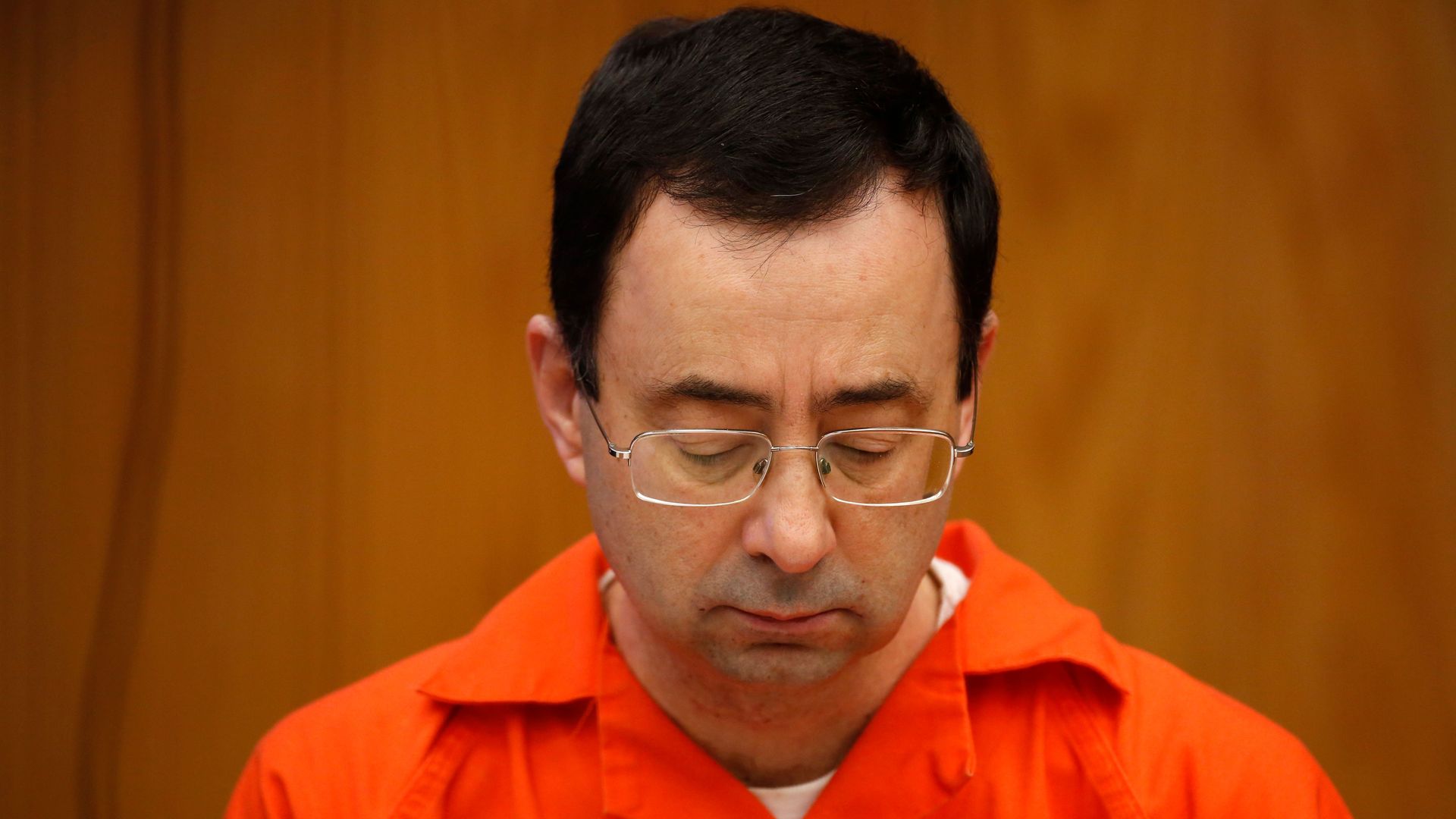May 26, 2022 - Politics & Policy
DOJ again declines to charge FBI agents in Larry Nassar sex abuse case
Add Axios as your preferred source to
see more of our stories on Google.

Former Michigan State University and USA Gymnastics doctor Larry Nassar at sentencing on Jan. 31, 2018, in Charlotte, Mich. Photo: Jeff Kowalsky/AFP via Getty Images
